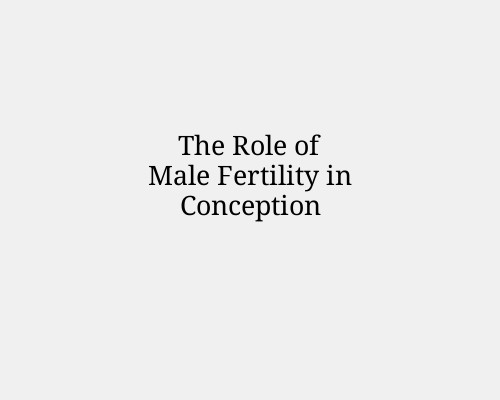
Improving male fertility naturally involves making lifestyle changes, dietary improvements, and reducing exposure to harmful environmental factors. Here are the most effective natural ways to boost sperm count, motility, and overall reproductive health:
Maintain a Healthy Diet
A nutrient-rich diet plays a crucial role in male fertility. Focus on foods that support sperm production and testosterone levels:
Zinc-rich foods: Oysters, lean meats, nuts, seeds, and whole grains improve sperm quality.
Antioxidant-rich foods: Fruits and vegetables high in vitamins C and E (oranges, berries, spinach, and almonds) help protect sperm from damage.
Healthy fats: Omega-3 fatty acids (found in fish, walnuts, and flaxseeds) support sperm function.
Folate-rich foods: Leafy greens, beans, and avocados are essential for sperm DNA integrity.
Coenzyme Q10 (CoQ10): Found in fish, poultry, and nuts, it enhances sperm motility.
Maintain a Healthy Weight
Being overweight or underweight can disrupt hormone levels, leading to lower sperm production. Aim for a balanced diet and regular exercise to maintain a healthy weight.
Exercise Regularly
Moderate exercise, such as weight training, walking, and yoga, helps increase testosterone levels and improve sperm production. However, excessive high-intensity training may lower fertility.
Reduce Stress
Chronic stress leads to increased cortisol levels, which negatively impacts testosterone production. Techniques to reduce stress include:
Meditation and deep breathing exercises
Regular physical activity
Adequate sleep
Engaging in hobbies
Get Enough Sleep
Poor sleep quality affects hormone levels, including testosterone production. Aim for 7-9 hours of sleep per night to support optimal fertility.
Limit Alcohol and Caffeine
Excessive alcohol consumption reduces testosterone and sperm production. Stick to moderate drinking (1-2 drinks per day). Similarly, high caffeine intake may impair sperm quality, so limit coffee and energy drinks.
Quit Smoking and Avoid Recreational Drugs
Tobacco smoking decreases sperm count, motility, and morphology. Recreational drugs such as marijuana, cocaine, and anabolic steroids can also impair fertility.
Stay Hydrated
Drinking enough water helps maintain semen volume and overall reproductive health. Aim for at least 8 glasses of water per day.
Avoid Excessive Heat Exposure
Heat damages sperm production. To improve fertility:
Avoid hot baths, saunas, and long periods of sitting with a laptop on your lap.
Wear loose-fitting underwear (boxers instead of briefs).
Avoid prolonged cycling, which may increase scrotal temperature.
Reduce Exposure to Toxins
Environmental toxins and chemicals found in pesticides, plastics, and industrial pollutants may harm sperm health. To minimize exposure:
Eat organic foods when possible.
Use glass or stainless steel containers instead of plastic.
Limit exposure to heavy metals and industrial chemicals.
Take Fertility-Boosting Supplements
Certain supplements have been shown to improve sperm health:
Zinc: Essential for testosterone production and sperm development.
Vitamin D: Supports healthy testosterone levels.
Folic Acid: Works with zinc to enhance sperm count.
CoQ10: Improves sperm motility.
D-Aspartic Acid: A natural amino acid that may boost testosterone.
Ashwagandha: An adaptogenic herb that enhances sperm quality.
Manage Underlying Health Conditions
Medical issues such as diabetes, hormonal imbalances, and infections can impact fertility. Consult a healthcare provider to manage chronic conditions effectively.
Final Thoughts
Improving male fertility naturally requires consistency in healthy habits. A balanced diet, regular exercise, stress management, and avoiding harmful substances can significantly enhance sperm quality and reproductive health. If natural methods don’t show results, consulting a fertility specialist is recommended.
